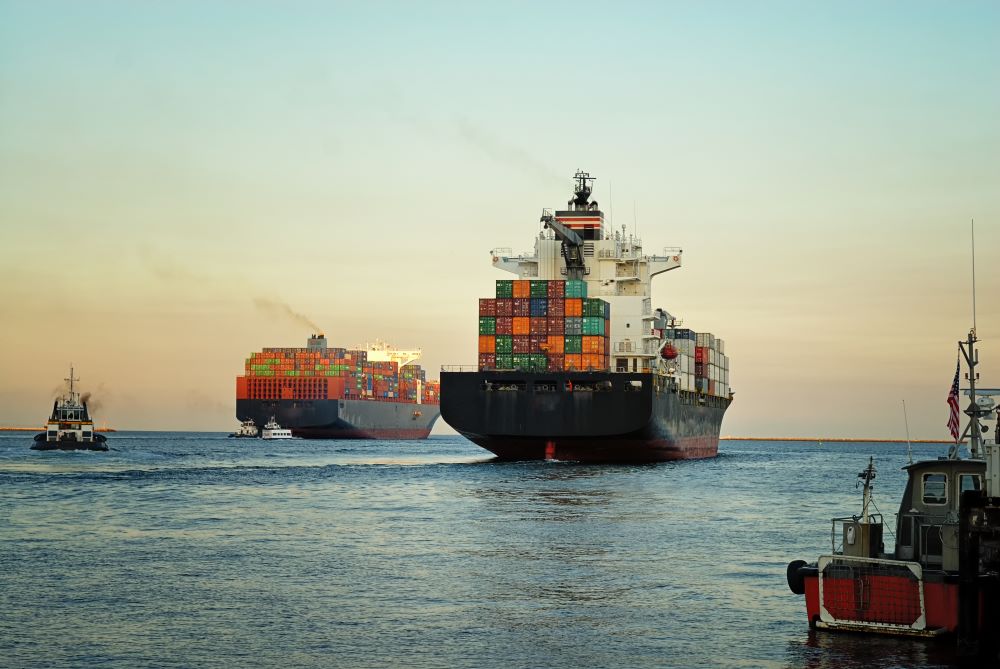
While it’s a quieter period of the year for many businesses, global trade is an industry that never sleeps.
In our latest round-up of developments impacting global shipping and supply chains, the IOE&IT Daily Update here looks at the port strikes saga in Canada, how the coup in the Niger is affecting air freight and ongoing instability around the Black Sea Grain Initiative.
End of Canadian port strikes
Dock workers on Canada’s west coast have accepted a final deal from port management, ending a long running saga that led to intervention from Canada’s federal government, the cancellation and reinstatement of multiple strikes, and extensive disruption for North American shippers.
Members of the International Longshore and Warehouse Union (ILWU) finally voted to accept negotiated terms on Friday (4 August), after rejecting two previous offers. A statement on the ILWU website said that 74.66% of workers had voted in favour of the deal.
No details have yet been released, but CBC is reporting that the agreement includes increased wages, improved benefits and more access to training for workers.
Lloyd’s List reports that the disruption could take weeks to sort out, with ports in British Colombia and rail terminals in the US continuing to be affected.
Air freight
The air freight market is still seeing lower-than-usual spot rates, although many within the industry are optimistic of a rebound.
Bruce Chan, a senior analyst at the Baltic Exchange Index, said the market was still in the “dog days” of summer. He noted that, during this earnings season, most forwarders “continue to report double-digit volume declines and yield declines in the 30% or greater range.”
Chan said the situation could change during the year as inflation begins to recede and consumer confidence grows, but that this was far from being guaranteed.
The Loadstar reports that rates in July dropped by at least 40% year-on-year, although forwarders were optimistic in a recovery driven by new product offerings.
Niger coup
Air cargo services are experiencing disruptions and cancellations after leaders of a recent coup in Niger closed off the country’s airspace.
Last month (26 July), a military junta overthrew the elected leader of Niger, president Mohamed Bazoum, prompting a strong diplomatic response from the Economic Community of West African States (ECOWAS) and other organisations.
Global flight tracking service FlightRadar24 said in a blogpost: “The closure of Niger’s airspace dramatically widens the area over which most commercial flights between Europe and southern Africa cannot fly.”
Many services were already prohibited from flying across Chad and the Sudan, also due to ongoing instability in the region. Yesterday (7 August), Air France, British Airways and Lufthansa suspended or diverted flights heading to West or Southern Africa.
Several freighters told the Loadstar that longer times would be expected for ‘belly cargo’ shipments – freight carried in the hold of commercial airlines – as well as dedicated cargo vessels.
Ukraine grain
Authorities are still exploring options to reforge the arrangement that saw foodstuffs shipped out of ports on the Black Sea, following Russia’s recent withdrawal from the deal facilitating this.
The Romanian government said that it is working to find more ways to move grain, according to Politico, including expanding capacity in the country’s ports.
Many of the attacks on Ukrainian facilities along the Danube come close to Romanian territory, prompting concerns over the continued shipment of foodstuffs. Romania’s foreign minister Luminița-Teodora Odobescu called Russia’s moves “really cynical.”
Today (8 August), senior Ukrainian officials told Politico that they could attack any Russian ports or ships as part of the country’s war efforts.
Trade Winds reports that the insurance markets are growing wary of providing cover to commercial shipping operating in the area, with quotes only lasting 24 hours (down from the standard 48), although prices are remaining stable.
UK scraps EU port rules
At the end of last month (31 July), the Department for Transport announced it was planning to repeal the EU’s Port Services Regulation (PSR), which had remained in force post-Brexit.
The PSR contains rules on how ports should be managed and includes provisions on financial transparency, port infrastructure and services provided by ports.
The British Port Association (BPA) reacted positively to the news. Its CEO Richard Ballantyne told Lloyd’s List that the PSR would have “created an inflexible system with additional costs for ports and shippers”.
There had been some concern over the effects of the regulation, with analysts saying that the UK’s ports were mostly privately owned whereas most EU ports have public sector owners.


